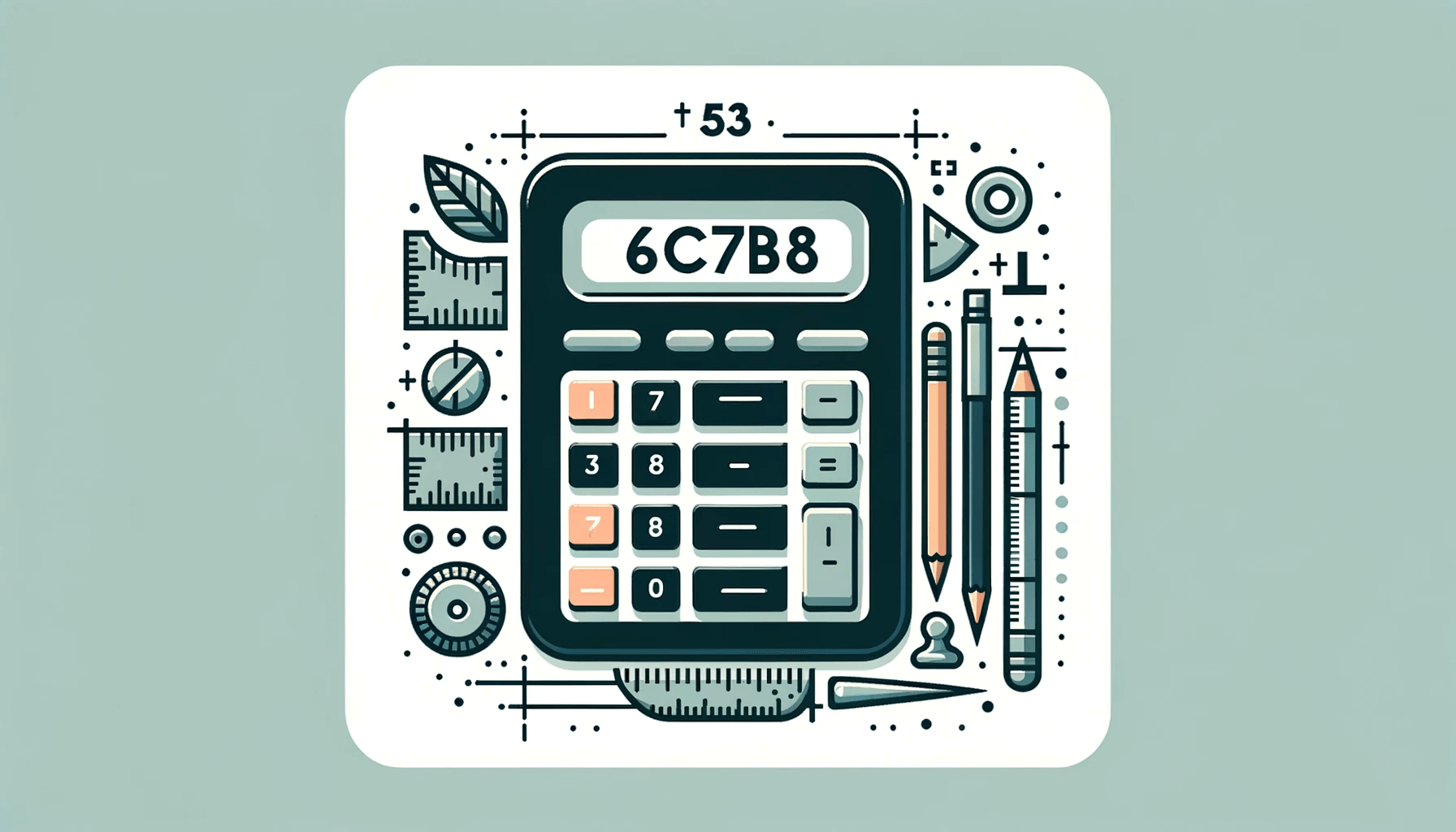A Bolt Pattern Calculator is a specialized tool used to determine the layout and spacing of bolts in a circular or non-circular pattern. This calculator is widely used in automotive, mechanical, and industrial engineering applications where accurate bolt alignment is critical for safety, functionality, and efficiency. By calculating the bolt pattern, users can ensure that components like wheels, flanges, and mounting plates are correctly aligned and securely fastened.
What is a Bolt Pattern?
A bolt pattern, also known as a bolt circle or pitch circle diameter (PCD), refers to the arrangement of bolt holes around a circular or other geometric shape. In a circular bolt pattern, the PCD is the circle’s diameter that passes through the centers of all bolt holes. It is typically defined by the number of bolts and their arrangement. The bolt pattern is crucial in ensuring compatibility between parts, such as wheels and hubs or flanges and pipes.
Importance of a Bolt Pattern Calculator
- Accuracy:
- Ensures precise placement of bolt holes to avoid misalignment or fitting issues.
- Compatibility:
- Verifies that components with specific bolt patterns will fit together seamlessly.
- Safety:
- Prevents failures caused by improper bolt spacing, which can lead to uneven load distribution.
- Efficiency:
- Streamlines the design and manufacturing process by automating calculations.
- Cost Reduction:
- Reduces material waste and production errors by providing accurate measurements upfront.
Key Parameters in Bolt Pattern Calculations
- Number of Bolts:
- Specifies how many bolts are arranged in the pattern.
- Bolt Circle Diameter (PCD):
- Defines the size of the circle on which the bolt holes are positioned.
- Hole Diameter:
- Determines the size of each bolt hole, which must match the bolt size.
- Angle Between Bolts:
- Calculates the angular spacing between consecutive bolts, especially in circular patterns.
- Center Position:
- Establishes the location of the pattern relative to the part or assembly.
Applications of a Bolt Pattern Calculator
- Automotive Industry:
- Ensures vehicle compatibility between wheels and hubs.
- Mechanical Design:
- Determines bolt arrangements for securing machine parts like gears, pulleys, and flanges.
- Industrial Fabrication:
- Designs bolt layouts for heavy machinery, pressure vessels, and structural components.
- Construction:
- Assists in aligning bolts for beams, plates, and other structural elements.
- Custom Manufacturing:
- Supports the creation of bespoke parts with unique bolt patterns.
Features of a Bolt Pattern Calculator
- Customizable Inputs:
- Allows users to specify parameters such as the number of bolts, PCD, and hole diameter.
- Instant Results:
- Delivers quick and precise calculations for faster decision-making.
- Graphical Representation:
- Provides a visual layout of the bolt pattern for easy verification.
- Multi-Pattern Support:
- Handles a variety of configurations, including circular, rectangular, and irregular patterns.
- Integration with CAD:
- Exports data to design software for seamless integration into engineering workflows.
Benefits of Using a Bolt Pattern Calculator
- Design Precision:
- Eliminates guesswork and ensures bolt holes are positioned strictly as required.
- Time Savings:
- Automates complex calculations, reducing manual effort and accelerating the design process.
- Error Minimization:
- Prevents costly mistakes in drilling or machining by providing accurate dimensions.
- Enhanced Compatibility:
- Confirms that components with pre-existing bolt patterns will fit together correctly.
- Improved Safety:
- Promotes even load distribution by ensuring proper alignment of bolts.
Challenges Addressed by the Calculator
- Complex Patterns:
- Simplifies calculations for irregular or non-standard bolt layouts.
- Multi-Component Assemblies:
- Ensures alignment across multiple parts with shared bolt patterns.
- Variable Dimensions:
- Adapts to parameter changes such as bolt size, circle diameter, and hole spacing.
- Prototyping:
- Speeds up the design iteration process for custom or experimental parts.
- Large-Scale Projects:
- Handles bolt pattern calculations for large assemblies with numerous fastening points.
Industries That Benefit from Bolt Pattern Calculators
- Aerospace Engineering:
- Designs bolt patterns for critical components like turbine engines and airframes.
- Energy Sector:
- Aligns bolts for wind turbine blades, solar panels, and power plant equipment.
- Marine Industry:
- Calculates bolt layouts for shipbuilding, including hull plates and engine mounts.
- Electronics:
- Ensures precise fastening of circuit boards, enclosures, and mechanical supports.
- Tooling and Fixtures:
- Optimizes bolt patterns for jigs, fixtures, and other manufacturing tools.
Conclusion
A Bolt Pattern Calculator is essential for engineers, designers, and manufacturers working with bolted assemblies. Providing accurate, efficient, and customizable calculations ensures compatibility, safety, and precision in various applications. Whether for automotive wheel hubs, industrial machinery, or structural supports, this tool simplifies designing and verifying bolt patterns, contributing to better performance and reliability in engineering projects.
Bolt Pattern formula
x coordinate = cos ( ( n – 1 ) * B + A ) * R + Xc
y coordinate = sin ( ( n – 1 ) * B + A ) * R + Yc
Where:
- A = First Hole Angle – from 0°
- B = Angle between holes ( 360 / Number of holes )
- n = Hole number counter
- R = Radius of the bolt circle (or) diameter of the bolt circle/2
- Xc = Hole X coordinate
- Yc = Hole Y coordinate


